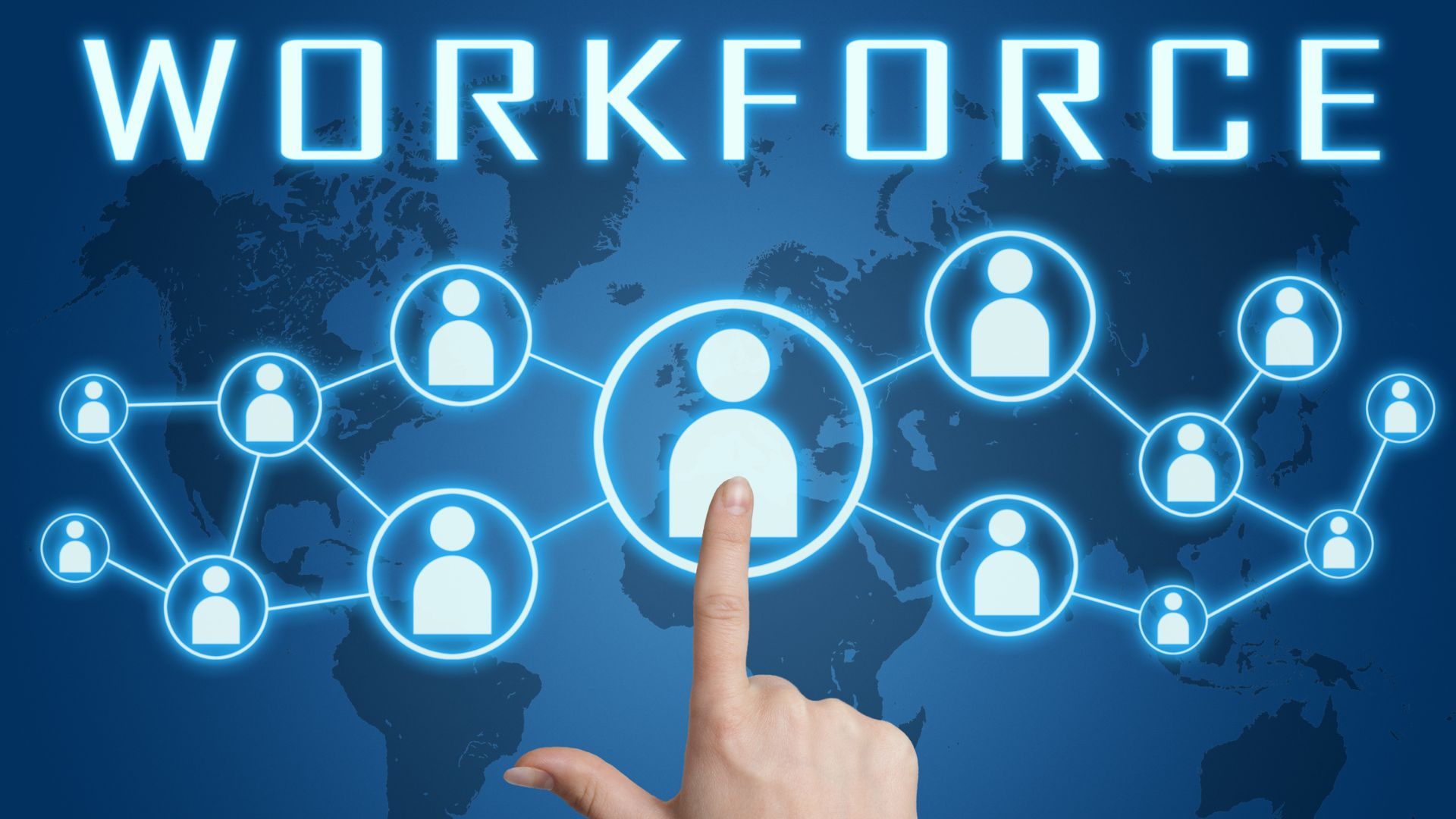Predictions 2021: The Future of the Workforce
By Mark Onisk via HR Daily Advisor
Published December 7, 2020

Whether you view the world of work through the lens of optimism or pessimism, the future of work is uncertain. And this year, change in the world of work was accelerated by the repercussions of COVID-19.
A recent survey by Brandon Hall Group found that 75% of organizations have at least half of their employees working remotely. Many companies either were not at all prepared to quickly transition to remote work or did not have a plan for remote work at this scale, which led to confusion across the board. At the onset of the pandemic, workforce challenges became more comprehensive than technical.
To address challenges the pandemic has exposed, employees have had to pick up skills that may not have been part of their formal education, relying on digital learning to quickly identify and fill the gaps. Heading into 2021, these are the key areas organizations will need to pursue as they head into the new normal—or, more accurately, the next normal.
An Agile Mind-Set
The pandemic made one thing clear: the need for agility. Agility has long been important for companies across functions, but as companies develop plans for operating in a pandemic-altered world, it is becoming a necessity. The pandemic accelerated the need for organizations to quickly transition to an agile work environment that provides workers with secure access to corporate resources and leaders anytime, anywhere.
Though the number of remote workers is expected to drop from the highs of stay-at-home orders, the workforce will still have more remote workers than ever before. Organizations are in the midst of adopting more of a hybrid workforce as a result of uncontrollable circumstances. Looking forward, we’ll see an increasing number of digital enterprises moving to a hybrid workforce by design. This new approach to the office setup will ultimately drive innovation and productivity, which helps build a more resilient organization.
Leaders will also need to continue to explore upskilling to enhance leadership styles, making agility the priority to effectively meet the needs of a continuously evolving workforce. With digital learning tools, organizations can adapt to a workforce that can no longer plan a month in advance and has to function under constant change.
Digital Learning
Corporate learning is a business function that has never been as important as it is moving forward. The use of digital tools increased almost overnight because of the pandemic. Pre-pandemic, many companies were focused on training employees within the four walls of the organization. To continue to have a performance-driven culture in a remote environment, employees have to have a basic understanding of digital skills to continue to adapt to changing circumstances.
Emerging digital learning tools add context, relevance, and personalization to the learning experience. Leaders and learners alike have engaged with and learned to master these tools quickly to keep pace with the changing economy. Being savvy with digital learning tools is essential for creating a workforce capable of identifying and solving for skills gaps in the organization while learning to work efficiently in increasingly unpredictable environments. The challenge in 2021 will be to continue to leverage digital learning solutions that deliver on real outcomes, rather than fixes that will be abandoned once people go back to the office.
Focus on Employees’ Well-Being
As the world of work is redefined, workplace health and safety, too, must be reimagined. While it is important for organizations to embrace digital learning, it is essential to focus on what matters most: the people. Employers must consider ergonomics while finding ways to avoid digital burnout and manage teams’ mental health issues.
The workforce’s ongoing evolution will remain stressful for many employees, and they will continue to feel the pressure. Organizations need to figure out how they will address the types of training they are going to need in this new environment. With workforce-management technology solutions, organizations can help employees directly by facilitating a more seamless return to work by keeping things consistent with the same process for each employee.
Technology can also provide immediate access to resources your organization may offer for dealing with mental stresses, financial planning, or anything else related to the COVID-19 crisis. This type of solution helps employers ensure people have the right resources at the right time and provides them with the tools they need to manage during a uniquely stressful time.
A Resilient Future
In the last year, organizations have had to address complex changes to meet goals. Leaders and employees alike faced new hurdles, building new skill sets along the way. During this time, leaders have learned the value of fostering.
By fostering a culture of resilience, companies equip employees with grit, persistence, and adaptability, as well as the capability to work through challenges that have arisen during the pandemic. The future of the workforce requires organizations and individuals to have personal resiliency, adaptability, and perseverance.
2021 will be a year of adaption and agile recovery. Learning plays a significant role in fostering a resilient workforce and equipping leaders with the skills needed to take on the unknown challenges. Continuous learning is the foundation for the new and growing hybrid work environment, preparing the workforce for the next normal.















